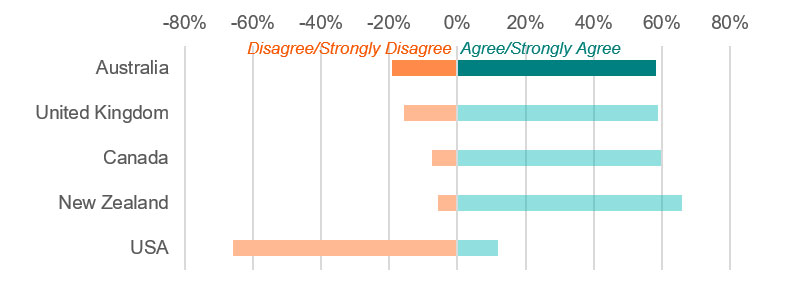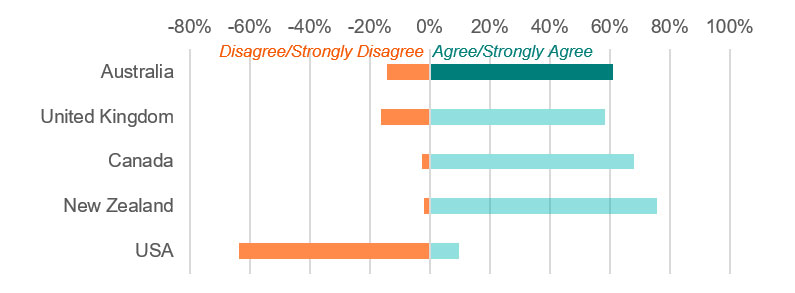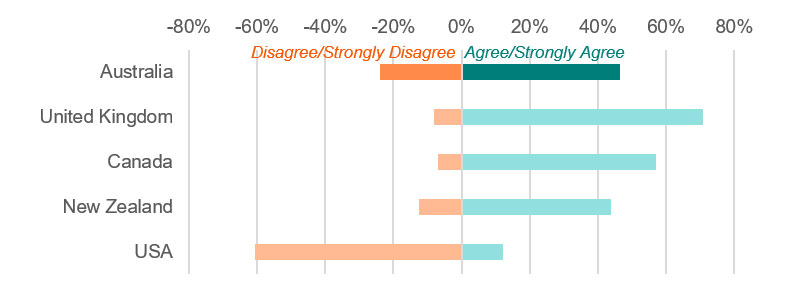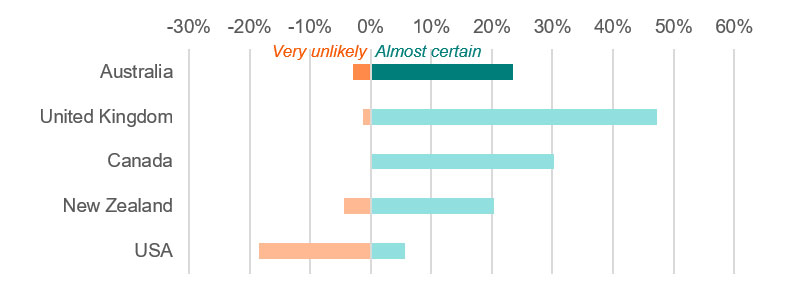Australia’s handling of the pandemic has lost some of its shine

In May 2020 Navitas surveyed its global agent network to explore how COVID-19 was changing the fortunes of international study destinations. Findings from that initial survey showed that Australia’s reputation as a study destination had been enhanced by the Australian government’s handling of the pandemic.
In September 2020 Navitas repeated its research, seeking to understand how agent perceptions have evolved with the continuing COVID-19 crisis and what this might mean for international education in the short to medium term.
In the most recent survey, just over 60% of agents agree/strongly agree that the Australian government’s handling of the pandemic has made it a more attractive study destination. This remains a respectable figure but is almost 20 percentage points lower than findings from the May survey.
This may be because Melbourne has seen a material second wave, entering an extended period of lockdown. It could also reflect the fact that the link between the handling of the pandemic and attractiveness as a study destination isn’t as strong as it was earlier in the year.
Figure 1: The government’s handling of the coronavirus has made it a more attractive study destination

Similar to New Zealand, there is a gap between agent perceptions of Australia as being ‘safe and stable’ (61% agree/strongly agree) and ‘open and welcoming’ (45% agree/strongly agree). This gap is particularly concerning for Australia because almost a quarter of respondents disagree/strongly disagree that Australia is open and welcoming – a far higher proportion than the UK (8% disagree/strongly disagree), Canada (7%) and NZ (12%).
Figure 2: This country’s reputation as being safe and stable has improved

Figure 3: This country’s reputation as being open and welcoming has improved

The negativity around Australia’s reputation for being ‘open and welcoming’ may be due to its strong stance on borders, particularly international borders. The ongoing border closures between states and territories may also be contributing to declining perceptions of being open and welcoming. The imperative to dedicate flight and quarantine availability to returning Australian citizens stranded overseas may also be a factor in shaping perceptions. The Australian government has set a target of repatriating all Australians wishing to return home by Christmas, potentially substantially freeing up availability for other arrivals, such as international students. Understandably, the potential resumption of international student travel into Australia is impacted by these domestic imperatives. However, there are also some positive signals coming from both levels of government.
Firstly, a number of pilot programs were being actively discussed at the time of the survey, with the first pilot into the Northern Territory approved by both Federal and territory governments at the time of publishing. Secondly, the Prime Minister recently announced that National Cabinet had endorsed the establishment of a group to look at alternative approaches to quarantine which could include home quarantine, on farm quarantine, quarantine by education providers, the use of technology and expanding international travel arrangements with very low risk countries and cohorts.
When asked about the prospect of students being able to travel in the first half of 2021, agents weren’t particularly pessimistic, with 23% considering this ‘almost certain’ and another 32% considering it ‘probable’. This rating is comparable to New Zealand, but not as favourable as Canada or the UK. Again, there is a fair proportion of detractors, with 13% considering the prospect unlikely/ very unlikely. It is important to consider whether Australia’s weaker reputation for being ‘open and welcoming’ is informed by other issues unrelated to the prospect of its borders reopening.
Figure 4: Students will be able to travel to this country in the first half of 2021

For a broad overview of the latest survey findings please see, ‘Perceptions of study destinations are changing as pandemic persists‘.
You may also be interested in what the findings tell us about the current appeal of the UK and Canada as international study destinations.